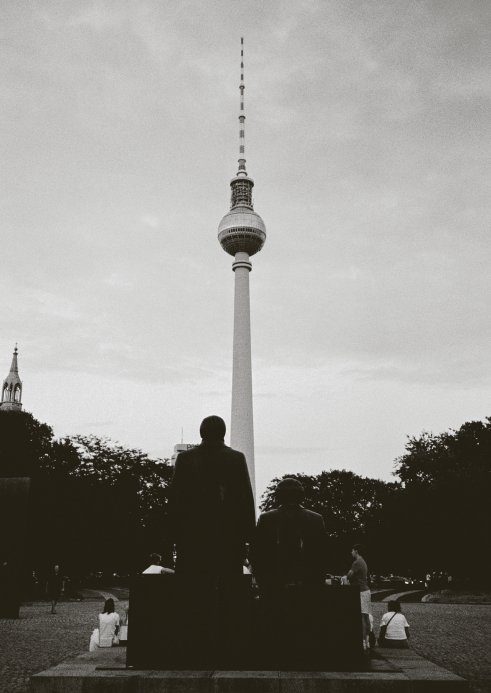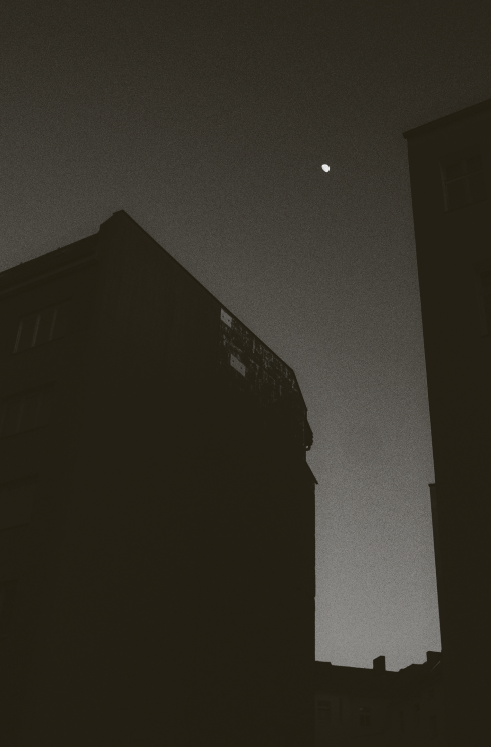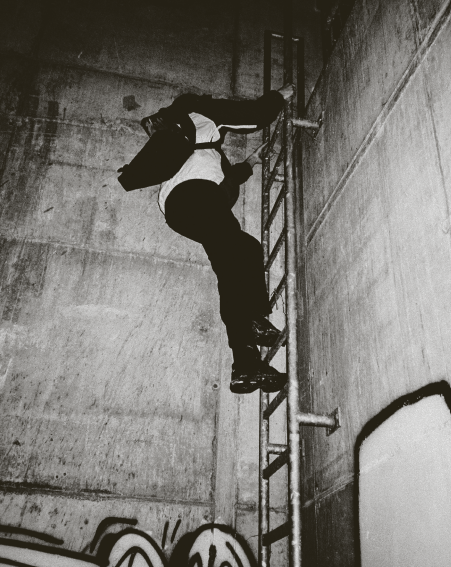Enough with doomscrolling, let’s go for utopia
You know the drill: climate change, pandemic, wars, rising prices, barely affordable housing, a broken healthcare system, a shift to the right and so on. The place is on fire.
Repeatedly pointing out that it’s burning has so far failed to put the sources of ignition out. Instead, many people resign themselves, withdraw into their own four walls and repress the fact that there is a fire at all. The crises seem overwhelming, the own fate inevitable. The world is going down the drain – and we have somehow got used to it.
It’s all pretty depressing. Instead of just despairing about it, we can also think about what we want to build instead of the burning hut. These sketches of a new house are nothing else than utopias.
The builders of the world to come: »Yo, we can do it!«
There is not the one utopia, but many different approaches and ideas: Some people dream of a city on Mars, others of a society without exploitation and still others of both. What all these ideas have in common is that they reject the status quo and seek change. The utopian aspect is that they cannot be realised overnight and can therefore seem completely unrealistic.
In some contexts, utopia in itself means something impossible: for example, places where the laws of physics are suspended and we are all able to fly. Unlike such things or religious visions of paradise, however, left-wing visions can certainly become reality – just not necessarily right now. After all, capitalism is not a law of nature, as you can read in this article. And a society in which no one has to starve, in which our freedom of movement is no longer restricted by passports and arbitrarily drawn borders, in which everyone can be different without fear and live together in solidarity, is certainly feasible – even if it may seem unattainable at first. After all, so did the moon until the first cosmonauts landed.
The liberated society will also have to take care of the production of food, the maintenance of machines and the care of the elderly. However, we can then decide together which tasks are necessary and divide them up as fairly as possible. Spoiler: Nobody will have to come up with advertising texts for mobile phone games or sweat in gigantic burger costumes anymore.
Of dream castles and creepy cabinets
Conservatives, on the other hand, are not at all interested in reorganising society: They want to leave the crooked hut as it is – after all, it’s always been there. They are happy to ignore the fact that the shed is in danger of collapsing. Instead, it’s all about who is allowed to enter the hut and who has to sleep outside the door. So conservatives have no utopia at all: Everything should stay the way it is, or else it should go back to the way it was. And anyone who longs for something better is dismissed as a dreamer or should better go see a doctor for their visions.
Because the political left wants a completely different whole instead of the existing one, it is something like the architect of a different world that we still have to build. Sometimes it is accused of having the wrong idea of the world, of having flaws in its blueprint. And there may well be something to that: After all, even ideas that started out as left-wing utopias can be inhumane, as the mass purges of Stalinism and Maoism have shown. A good architect is therefore open to criticism. Sometimes the left is also criticised for being too unrealistic. After all, the realisation of utopias cannot be forced as long as the conditions are not in place. For example, it is not yet possible to send people to Mars. And social ideas can only be realised if there is enough support for them. Otherwise, utopia ceases to be a utopia and instead becomes a justification for oppression and terror.
However, it is nonsense to accuse the architect of having a blueprint, an idea of the world to come.
Left-wing utopias differ fundamentally from fascist ideals: Where some want to build palaces for all, others rely on bunkers with huge stocks of tinned food and self-firing devices outside the entrance. The left have utopias, fascists have dystopias.
Rugs, recycling bins or revolution
Utopias start on a small scale: as individual ideas of what a different world could look like. However, if they spread and infect many others, they can become the driving force behind large movements. Utopia is therefore not just a theory, but also the justification and driving force behind practice: It motivates movements to continue taking their protest to the streets, political groups to think about their strategy and you to argue with uncle Bernd at the breakfast table.
Utopia is therefore the prerequisite for revolutionary movements: because their goals must exist before they are even realisable. Only then can you work towards them and seize the opportunity when the time comes. For example, the mutinous sailors were only able to trigger nationwide uprisings in 1918 because socialist ideas and workers‘ organisations were already widespread throughout the country – you can read more about this in this article.
It can be frustrating to think and plan for such long periods of time. But not doing so is not an alternative: because if you only tinker with little things in the here and now, you can change the decoration or the wall colour of the hut, but that doesn’t make the shed a palace. Raising the minimum wage by a few cents, for example, is better than nothing and makes a real difference to many people’s lives. However, a liberated society without exploitation will not be included in a governmental nor oppositional bill. Conditions can only be overturned by utopias.
A revolutionary movement must therefore always be one step ahead of current conditions. The left must not stop at criticising the status quo: We know that the hut is burning. But lamentation alone is not enough to extinguish it. A strong, captivating utopia, on the other hand, has the power to mobilise a left-wing movement against the trouble spots and to counter them with hope for a better society. We have nothing to lose, but a world to win.
For further reading:
Leszek Kołakowski: Der Sinn des Begriffs Linke. In: Der Mensch ohne Alternative. Von der Möglichkeit und Unmöglichkeit, Marxist zu sein. 1974.



